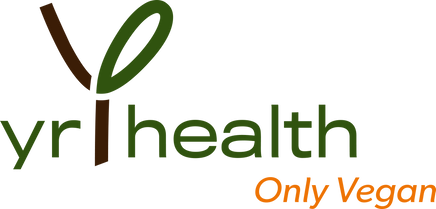on Orders over £25

The Best Foods and Supplements for Muscle Recovery
Muscle recovery is a crucial part of achieving fitness goals and maintaining your overall health. The process involves repairing muscle tissue, which helps to reduce soreness and improve overall performance. Without recovering properly, muscles may remain fatigued, which can increase your risk of injury while also slowing down your progress.
A well-balanced diet plays a key role in this process, providing essential nutrients to support muscle repair and regeneration. In addition to whole foods and protein intake, supplements can further support recovery, ensuring your muscles get everything they need to rebuild stronger and more resilient. This article covers everything from key nutrients and foods to helpful supplements and tips for healthy muscle recovery while following a vegan diet.
Key nutrients for muscle recovery
First, let’s take a look at some of the key nutrients for proper muscle recovery:
- Protein: Protein is essential for repairing and rebuilding muscle fibers after exercise. Vegan-friendly sources include lentils, chickpeas, tofu, tempeh, quinoa, and seitan, all of which provide high-quality plant-based protein to support recovery.
- Amino Acids: Branched-chain amino acids (BCAAs) play a crucial role in muscle repair and reducing soreness. While animal products are the most common sources, plant-based options such as soy, peas, and seeds also provide these essential amino acids, as do certain supplements.
- Antioxidants: Exercise can lead to oxidative stress, which can cause muscle inflammation and slow down recovery. Antioxidant-rich foods like berries, dark leafy greens, and nuts help combat free radicals and reduce post-workout inflammation.
- Electrolytes: Proper hydration and electrolyte balance are key for muscle function and preventing cramps. Potassium-rich foods like bananas, coconut water, and spinach help replenish electrolytes lost through sweat, keeping muscles functioning optimally.
Best vegan foods for muscle recovery
Here are some wholesome plant-based foods that each play their own role in supporting muscle recovery:
- Legumes & beans: Legumes, such as lentils, chickpeas, and black beans, are excellent sources of both protein and fiber. These foods provide sustained energy for recovery while also offering a rich supply of essential amino acids that support muscle repair and growth.
- Nuts & seeds: Packed with healthy fats, protein, and key micronutrients like magnesium and zinc, nuts and seeds support muscle function and reduce inflammation. Chia, flax, almonds, sunflower, and pumpkin seeds are especially good choices for recovery.
- Fruits & vegetables: Many fruits and vegetables have powerful anti-inflammatory properties, helping to speed up muscle recovery. Berries, oranges, and dark leafy greens like kale and spinach are rich in antioxidants, vitamins, and minerals that aid in reducing muscle soreness.
- Whole grains: Whole grains, including brown rice, quinoa, and oats, are excellent for replenishing glycogen stores depleted during exercise. These complex carbohydrates provide long-lasting energy, allowing your muscles to recover more effectively and prepare for future workouts.
Vegan supplements to support recovery
If you want to optimise your muscle recovery, these supplements can help:
- BCAAs: Branched-chain amino acids (BCAAs) play a key role in muscle repair, reducing soreness, and improving endurance. While they are found in plant-based foods like soy, peas, and seeds, supplementing with a vegan BCAA supplement can provide a more concentrated dose for optimal recovery.
- Magnesium: This essential mineral helps relax muscles, prevent cramps, and support sleep quality, which is an important factor in muscle recovery. While magnesium-rich foods like pumpkin seeds, spinach, almonds, and dark chocolate provide natural sources, a supplement can help ensure adequate intake, especially for active individuals.
- Zinc: Zinc is crucial for tissue repair, inflammation regulation, and protein synthesis, all of which contribute to muscle recovery. While it can be found in plant-based sources like chickpeas, lentils, hemp seeds, and cashews, supplementing with zinc can help maintain optimal levels, particularly for those with higher training demands.
-
Combined supplements: Some people find combined supplements with multiple nutrients more convenient. For example, our Calcium, Magnesium, Zinc & Vitamin D3 supplement combines two key muscle recovery nutrients and includes additional vitamins and minerals for extra health benefits.
Hydration & lifestyle tips for optimal recovery
Finally, here are a few simple tips that can help support your muscle recovery process:
- Stay hydrated: Water plays a crucial role in muscle recovery by transporting nutrients, flushing out toxins, and preventing dehydration-related muscle cramps. Maintaining electrolyte balance with sources like coconut water, bananas, and leafy greens helps replenish minerals lost through sweat.
- Prioritize sleep: Quality sleep is when the body repairs and rebuilds muscle tissue. Aim for 7–9 hours of rest each night to support recovery, with magnesium-rich foods or supplements helping to promote relaxation and deeper sleep.
- Incorporate active recovery: Engaging in light movement, such as stretching, yoga, or walking, can help reduce muscle stiffness and improve circulation. Active recovery supports flexibility, reduces soreness, and helps muscles repair more efficiently.
Key takeaways
Here are the key points to remember about supporting muscle recovery with nutrition and supplements:
- Proper muscle repair is essential for achieving fitness goals and maintaining overall health.
- Protein helps repair muscles and can be found in lentils, tofu, tempeh, quinoa, and seitan.
- Amino acids like BCAAs support recovery and are found in soy, peas, and seeds.
- Antioxidants reduce inflammation and are present in berries, dark leafy greens, and nuts.
- Electrolytes maintain muscle function and hydration through coconut water, bananas, and spinach.
- Legumes, nuts, fruits, and whole grains provide essential nutrients for recovery.
- Vegan supplements like BCAAs, magnesium, and zinc aid muscle repair, sleep, and inflammation.
- Hydration is essential for muscle recovery and should include water and electrolytes.
- Sleep is crucial for muscle repair, with seven to nine hours being ideal.
- Active recovery through stretching, yoga, and light movement helps reduce soreness.

